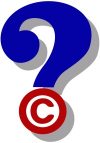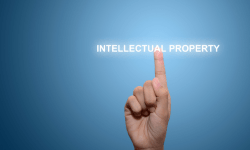Dear Doc:
Every time I read about some new case being decided by the Court of Appeals for the Federal Circuit, I get more confused about what exactly is the patent (or trademark) law that they are using. What gives?
Signed,
Dazed and Confused
Dear D&C:
It seems to the Ol’ Doc that over the past fifteen or so years, the law of intellectual property has become a confusing mess – just a fire swamp ready to deal harshly with inventors and entrepreneurs who dare to set foot in this domain. Because the Doc has been practicing law for (ugh!) more than 40 years, he sometimes fails to appreciate just how complex, confusing, and contradictory the law has become for his clients. But then, the courts come along and remind him (and everyone else) by handing down a decision so bizarre that even the angels who dance nightly on pinheads are amazed.
<soapbox> Our intellectual property laws, like all laws, are a mixture of legislation passed by Congress and signed by the President, and judicial decisions that are supposed to interpret and clarify that legislation. Then we add in the rules and decisions of the United States Patent and Trademark Office and the Copyright Office, and – voila! – we have a set of laws to protect inventions, trademarks and copyrightable works. Legislation is often proposed to our representatives by lobbyists, and these folks are often hired by corporations and foreign governments that have an interest in changing the law for their own benefit. To this unappetizing stew, we then add highly paid law professors who are hired to “research” and then write law review articles espousing the points of view of those who endow their positions.
These law review articles are then used in court and are cited by judges to justify their decisions, which sometimes run directly counter to the law as Congress wrote it. This “judge-made law” then controls future cases (including the Patent Office and how it goes about examining applications, and the Copyright Office’s work as well), at least until Congress can pass yet another law to set things straight, which can (and does) take decades.
Because the Common Law builds cases on precedent, over time, our laws take on the appearance of sedimentary rock, with layer upon layer of case law that needs to be understood and abided by. This, in part, is why inventors who try to navigate the system by themselves so often fail, and also why the hourly rates charged by most intellectual property attorneys are so steep – just learning the law takes many years, and staying up to date with the law (as well as with advances in technology required of competent patent attorneys) is much more than a full-time job!
The Doc believes that, on occasion, a complete rethinking of the law should be undertaken. This last happened in patent law with the 1952 Patent Act, when Congress, the Patent Office, and the Bar got together to overcome the mess that the Supreme Court had made by their “flash of genius” test for whether an invention was patentable. The law was completely overhauled, and Congress stated its view in the very first sentence: “Whoever invents or discovers any new and useful process, machine, manufacture, or composition of matter, or any new and useful improvement thereof, may obtain a patent therefor, subject to the conditions and requirements of this title.” (35 U.S.C. §101).
Since 1952, the Supreme Court has “judge-made” many exceptions to that simple law, and the resulting law of what may be patented now resembles Swiss cheese. The Doc now believes that the time is right to shine a lot of sunlight on the law of intellectual property, and undertake a full rewrite with the goal of doing just what the Founders said when they wrote the United States Constitution: “To promote the progress of science and useful arts, by securing for limited times to authors and inventors the exclusive right to their respective writings and discoveries.” (U.S.Const. Art. I, Sec. 8, Cl. 8).</soapbox>
Do you have an invention, copyrightable work, trademark or trade secret in need of legal protection? The attorneys at LW&H spend a great deal of time making sure that they are knowledgeable about the law and technology, and they’d be glad to help. Give them a call.
Until next month,
The “Doc”
— Lawrence A. Husick, Esq.



